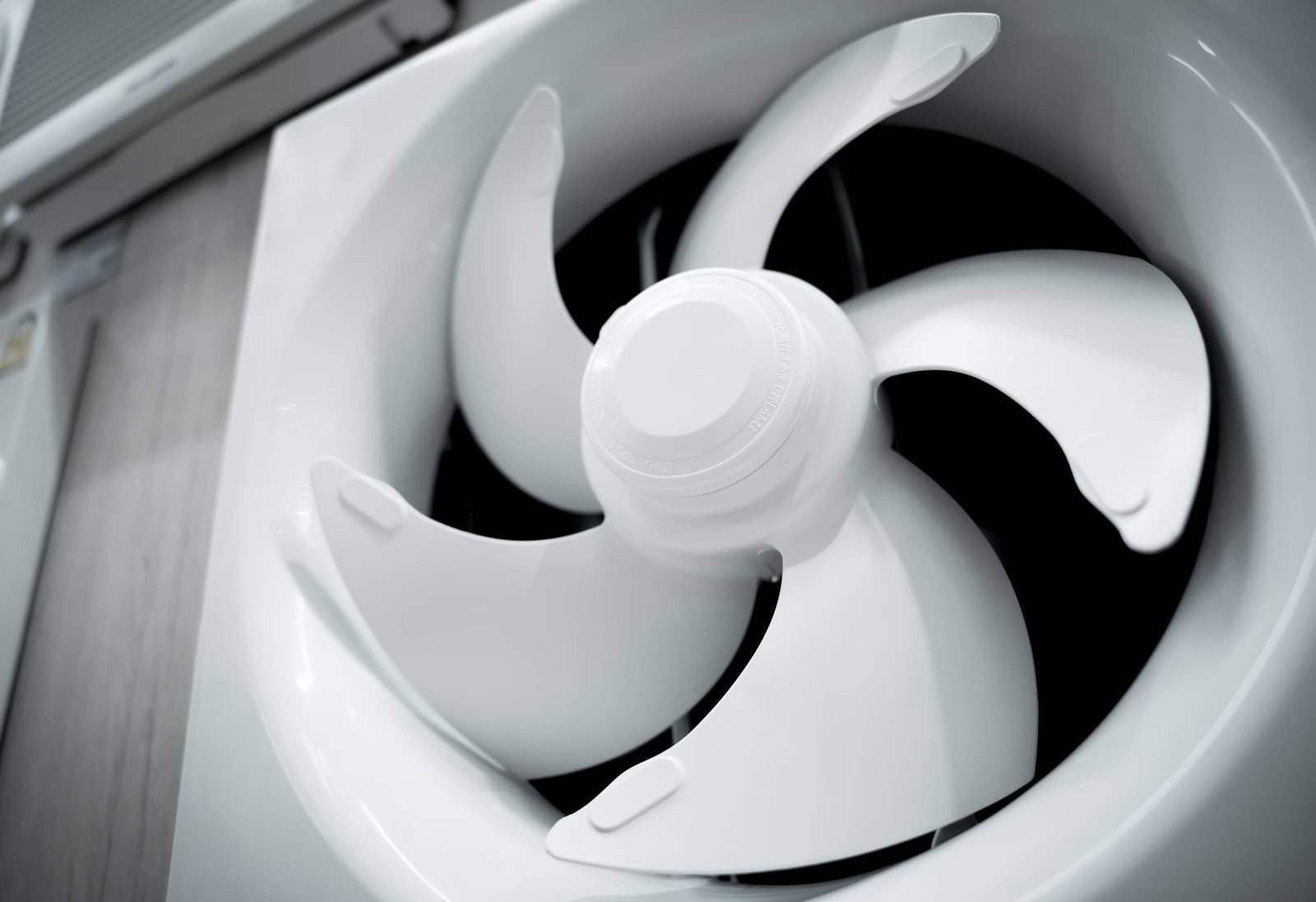A well-functioning exhaust fan is crucial for maintaining indoor air quality and comfort. Its role in removing excess moisture, odors, and pollutants from spaces like bathrooms and kitchens cannot be overstated. However, a noisy exhaust fan not only disrupts the tranquility of your home but also signals potential issues that need attention. Understanding the causes behind the noise and addressing them promptly can ensure your fan operates efficiently and quietly.
Common Causes of Exhaust Fan Noise
Accumulation of Dust and Debris
Over time, dust and debris naturally accumulate within your exhaust fan. This buildup can cause vibrations and result in loud, annoying noises. To combat this, regular cleaning of the fan’s components, including the blades and housing, is essential. Keeping these parts clean helps maintain the fan’s performance and reduces unwanted noise.
Loose or Damaged Fan Components
Exhaust fans consist of several components that can become loose or damaged with use. Loose screws or damaged parts can lead to rattling sounds that are both disruptive and indicative of a problem. Tightening loose components or replacing damaged ones can resolve these noise issues and ensure smooth operation.
Worn-Out Motor Bearings
The motor bearings in an exhaust fan are critical for its silent operation. As these bearings age, they can wear out and produce squealing or grinding noises. To address this, you may need to lubricate the bearings or replace them if they are too worn. Regular maintenance can help extend the life of these components and keep the noise levels in check.
Misaligned Fan Blades or Blower Wheel
Proper alignment of fan blades and the blower wheel is crucial for quiet operation. Misalignment can cause these parts to strike the fan housing, creating noise. Adjusting or realigning the blades and blower wheel can eliminate these sounds and improve the fan’s efficiency.
Insufficient Lubrication
Lubrication is key to the smooth operation of an exhaust fan’s moving parts. A lack of lubrication can lead to squeaky noises as the components rub against each other. Applying the appropriate lubricant to the motor shaft and other moving parts can help reduce these noises and keep the fan running quietly.
Troubleshooting Steps for a Noisy Exhaust Fan
Safety Precautions
Before inspecting or repairing your exhaust fan, ensure that the power is turned off. This step is crucial to avoid any electrical hazards or accidents while you work on the fan.
Cleaning the Fan
- Turn off the power to the fan.
- Remove and clean the vent cover to eliminate dust and grime.
- Use a vacuum to clean the fan blades and housing thoroughly.
- Test the fan to check if the noise has reduced after cleaning.
Inspecting and Adjusting the Fan
- Check for any loose components and tighten them as necessary.
- Inspect the alignment of the fan blades and blower wheel, adjusting if they are hitting the housing.
- Lubricate the moving parts to ensure they operate smoothly and quietly.
When to Consider Replacing the Fan
Persistent Noise Issues
If your exhaust fan continues to make excessive noise despite your troubleshooting efforts, it may be time to consider a replacement. Persistent noise often indicates that the fan’s components are worn out or damaged beyond repair.
Old or Outdated Fan Models
Older fan models might lack the advanced features of newer ones, including quieter operation and greater efficiency. Replacing an old fan with a modern, quieter model can provide a long-term solution to noise problems and enhance overall performance.
Professional Help for Exhaust Fan Issues
When to Call an Electrician
If you encounter persistent noise issues or are unsure about handling electrical components yourself, seeking the help of a professional electrician is advisable. An electrical expert can diagnose and address complex problems safely and effectively.
Choosing the Right Replacement
When selecting a replacement fan, opt for models known for their quiet operation and energy efficiency. A well-chosen replacement can significantly reduce noise and improve the fan’s overall performance.
Conclusion
Addressing the noise from an exhaust fan involves understanding its common causes, performing regular maintenance, and knowing when to replace the fan. By following these guidelines, you can ensure that your fan operates quietly and efficiently, contributing to a more comfortable and pleasant home environment. Regular upkeep and timely interventions will help maintain optimal performance and prolong the lifespan of your exhaust fan.

